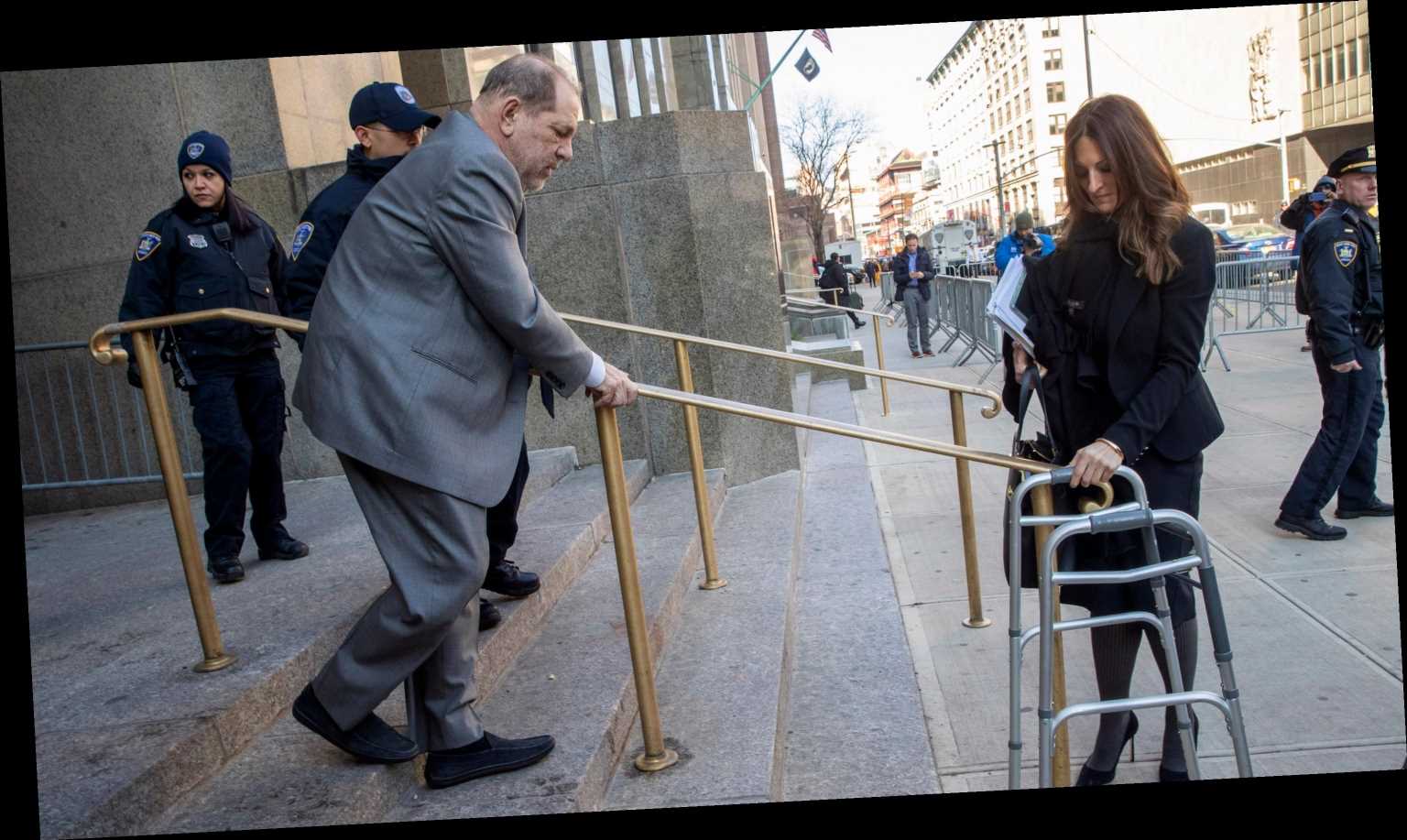Harvey Weinstein's lead attorney Donna Rotunno, left, holds his walker as he leaves court on Jan. 15, 2020, in New York. (Photo: Mary Altaffer, AP)
NEW YORK — Harvey Weinstein is again seeking to move his sex-crimes trial out of Manhattan, this time arguing that initial screening shows the jury pool has been “tainted” by a “deluge” of prejudicial pretrial publicity further amplified by new charges filed in Los Angeles as the trial opened.
“The current venue has devolved into a carnival-like atmosphere that no prospective juror can avoid,” according to the motion filed by one of Weinstein’s defense lawyers, Arthur Aidala.
He described courthouse hallways and entrances clogged with media cameras, celebrity press conferences taking place on the steps and protesters shouting loud enough outside to be heard inside the courtroom.
Meanwhile, on January 7, the second day of the trial when jury screening was to begin, prosecutors in Los Angeles County filed similar sex-crime charges there against Weinstein, the fallen movie mogul who is charged with five sex crimes, including rape and predatory sexual assault, in the New York case.
Weinstein, 67, has pleaded not guilty to the charges and denies all allegations of non-consensual sex. The Los Angeles charges are on hold until after the resolution of the New York trial, which is expected to last for about two months. Opening statements are targeted to begin on Jan. 22 in New York.
But so far, jury screening has shown a substantial number of potential jurors to be openly candid about how they have already made up their minds about the case. Out of 142 prospective jurors who filled out questionnaires, 130 had already heard about the case before they entered the courtroom, Aidala wrote.
“An alarmingly high percentage of prospective jurors in New York County have already shown an unwillingness to give fair and impartial consideration to the case,” Aidala wrote, citing open expressions by potential jurors in court and “clear biases” hidden from the judge but expressed on social media.
Arthur Aidala, one of Harvey Weinstein's defense attorneys, outside courtroom in Manhattan, Jan. 14, 2020. (Photo: Richard Drew, AP)
In the face of “this perfect storm of prejudice” against Weinstein, Aidala wrote, trial Judge James Burke has been unwilling to implement safeguards the defense thinks are needed to ensure Weinstein gets a fair trial.
“If this case does not present the strongest example of a criminal case in desperate need of a change of venue to preserve the constitutional rights of the defendant, when would a change of venue ever be appropriate in New York County?” Aidala wrote.
Aidala was especially irked by the Los Angeles charges. He suggested prosecutors there and in New York must have coordinated their cases to stir up “even more frenzy” in New York, Aidala wrote.
“The only antidote to this problem is to remove the case from the spotlight of the country’s two largest media markets and move the trial to a quieter jurisdiction.”
Harvey Weinstein arrives at a Manhattan courthouse on Jan. 14, 2020. (Photo: Seth Wenig, AP)
It is not clear from the defense motion where that might be. The document says only the case should be moved to “another county in New York” but did not specify which one.
Weinstein tried last summer to get an appellate court to approve a change of venue, asking it be moved to either Albany or Long Island. That motion also cited pretrial publicity in the world’s media capital. A five-judge panel denied the motion in October but did not give a reason for the decision.
But that was before Judge Burke began the process of pre-screening hundreds of prospective jurors for possible biases or other reasons why they could not sit on the jury. On the first day of screening last week, about one-third of the first pool of 120 people were dismissed when they were asked if they could be fair and impartial and they all answered some version of “I can’t.”
“It is an axiom of American law that criminal defendants have the right to be tried in a forum free of ‘prejudice, passion, excitement and tyrannical power,’ ” Aidala wrote, citing multiple court precedents where New York trials have been moved due to prejudicial pretrial publicity.
If prejudicial pretrial publicity has tainted a potential jury pool, the U.S. Supreme Court has held that a defendant is entitled to a change of venue to protect his 6th Amendment right to an impartial jury and his 14th Amendment due process right to a fair trial.
The Manhattan District Attorney’s Office declined to comment, but prosecutors strongly objected to Weinstein’s first attempt to move his trial, and their arguments prevailed.
Source: Read Full Article
